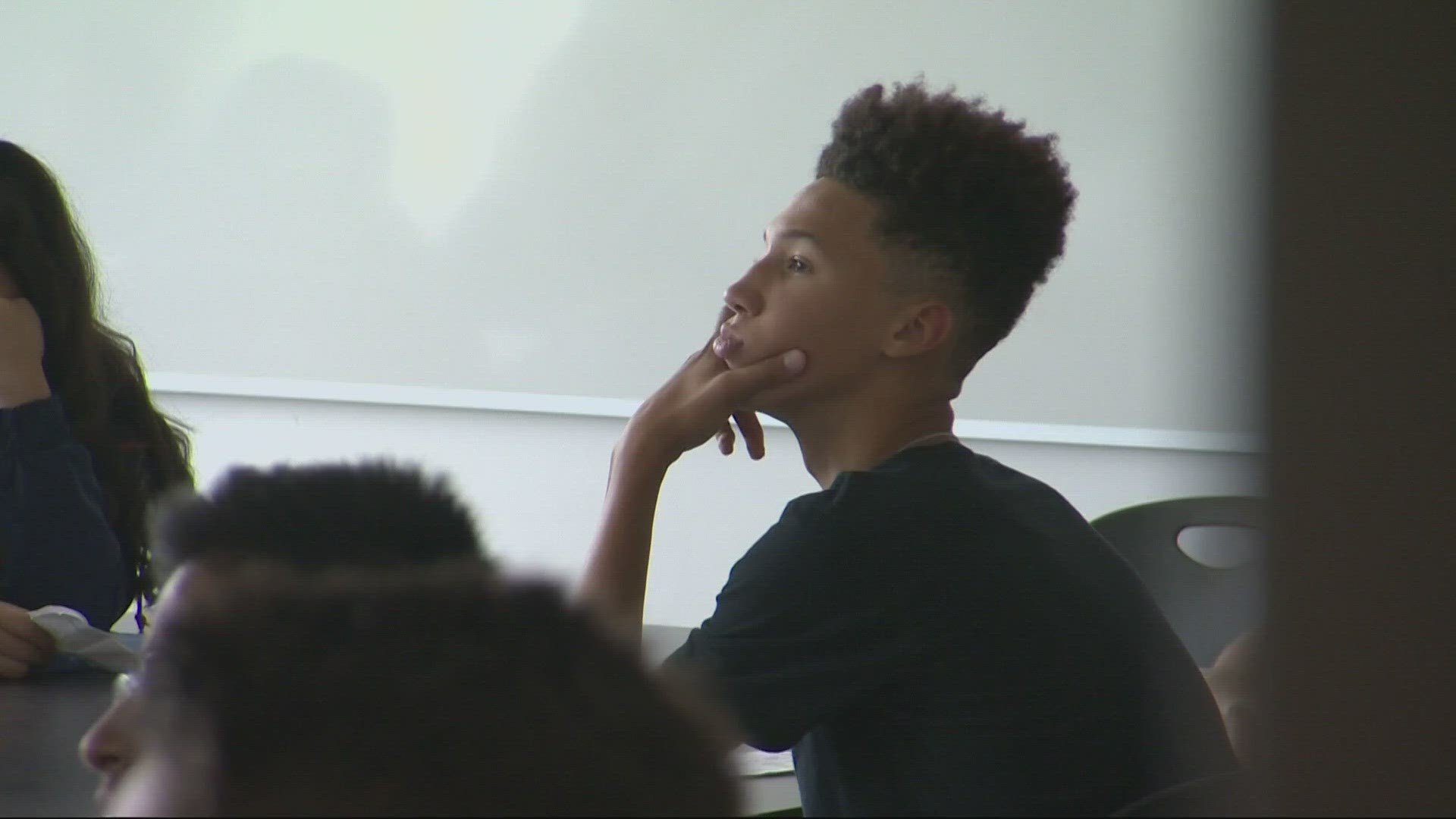SALEM, Ore. — The superintendent of Salem-Keizer Public Schools joined a growing chorus of criticism aimed at Oregon's funding system for K-12 public schools as her district attempts to slash its budget by $30 million to address a major funding shortfall.
"The truth is that we are in a deep budget hole, and our job as district leaders is to build the ladder that helps us begin to climb out," Superintendent Andrea Castañeda said in a video message to Salem-Keizer families on Wednesday.
Piggybacking on complaints that emerged from Portland Public Schools during the recent teachers strike, Castañeda pointed to the state of Oregon's funding model for public schools as a contributing factor. But, she said, Salem-Keizer receives significantly less funding than Portland — to the tune of $115 million.
PPS had some 45,000 students enrolled this school year, compared to about 40,000 in Salem-Keizer. While PPS is the largest district in the state and Salem-Keizer is the second-largest, Castañeda said that her district is the largest "diverse district."
"Oregon's state K-12 public education funding system is archaic and inequitable," Castañeda said. "It is creating enduring damage to Salem-Keizer public school students. And as of today, there is no clear solution in sight."
To plug the funding gap, Castañeda said she's proposing $30 million in "district-facing" funding cuts, in hopes of blunting the impact on students and educators. Still, she said, even those cuts won't solve Salem-Keizer's overall budget problem.
Cuts will start at the top, Castañeda said, with a pay freeze for 63 senior administrators. She will also contribute $30,000 of her own salary over this and next year back into the district budget, she said. Meanwhile, the district will reduce its purchases of technology and vehicles for the foreseeable future, and curtail travel for training conferences.
While those steps mark the beginning of the district's planned cuts intended to slash $30 million from the budget, there will be more announcements in the days ahead.
Eyes on the legislature
As a historic teachers strike unfolded for Portland Public Schools, district messaging began to turn toward the Oregon Legislature. Lawmakers did not fund Oregon public schools to the level necessary in order to give teachers what they were demanding, the district argued.
Some state lawmakers fired back at the district, saying that they gave public schools the $10.2 billion they'd requested, the highest level of funding in state history. But PPS gestured to a 2022 report from Oregon's Quality Education Commission that calculated schools should receive almost $11.9 billion, nearly $2 billion more than they received.
Just four years ago, lawmakers passed the Student Success Act, a corporate activity tax expected to bring in over $1 billion each year for Oregon public education programs.
As members of the PPS board voted Tuesday to accept the deal they'd struck with the teachers union, board member Andrew Scott suggested that administrators felt they'd needed to accept the legislature's $10.2 billion to continue funding their schools at maintenance levels, fearing they'd otherwise end up with less.
Scott said that Oregon's $5 billion kicker rebate, which will go out to taxpayers on their 2023 tax returns, could have been "transformational" if used as funding for Oregon school districts.
In a press briefing this week, Gov. Tina Kotek signaled that she's heard the complaints and suggested a course of action for the next legislative session in order to right the ship of public education in Oregon.
A legislative task force was formed this year to study Oregon teacher salary levels, and Kotek said that lawmakers should consider a statewide teacher salary schedule so districts will have more predictable budgets. She also said her office will take a more active role in the way the state funds school districts.
"What we heard was 'current service level didn't do it,'" Kotek said Tuesday. "We have outstanding needs around wage growth in our schools and related to contracts, so we have to, I think, take a deep dive on how we're doing our school funding formula."
Kotek also said she plans to create an Office of Transparency within the Oregon Department of Education to make school district data more accessible, referencing public confusion during the strike over the resources that PPS actually had available.
Oregon budgets on a two-year cycle, meaning the next big round of education funding from lawmakers won't be expected until the 2025 legislative session. Kotek's comments on Tuesday reflected that schedule; she said she wants to keep the focus on housing production and the homelessness during the upcoming 2024 session, but that her education plan would allow lawmakers to come into the 2025 session with a better understanding of what the state's school districts need.

